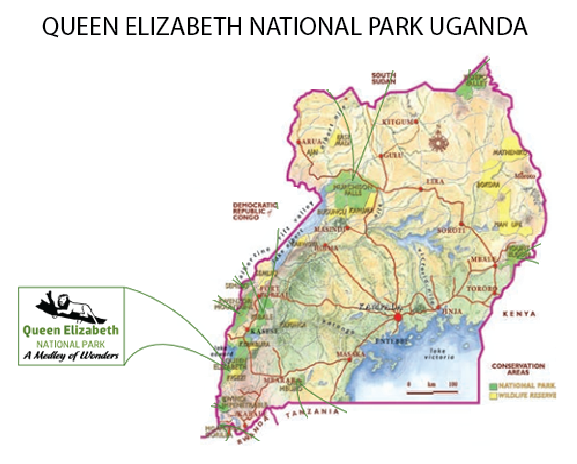
Queen Elizabeth National Park is understandably Uganda’s most popular tourist destination. The park’s diverse ecosystems, which include sprawling savanna, shady, humid forests, sparkling lakes, and fertile wetlands, make it the ideal habitat for a classic big game, ten primate species including chimpanzees, and over 600 species of birds.
Set against the backdrop of the jagged Rwenzori Mountains, the park’s magnificent vistas include dozens of enormous craters carved dramatically into rolling green hills, panoramic views of the Kazinga Channel with its banks lined with hippos, buffalo, and elephants, and the endless Ishasha plains, whose fig trees hide lions ready to pounce on herds of unsuspecting Uganda kob.
As well as its outstanding wildlife attractions, Queen Elizabeth National Park has a fascinating cultural history. There are many opportunities for visitors to meet the local communities and enjoy storytelling, dance, music, and more. The gazetting of the park has ensured the conservation of its ecosystems, which in turn benefits the surrounding communities.
Most of Queen Elizabeth comprises open grassland and savannah which tends to be moist and woody in the west than the eastern part, Thorny Acacia dominates this savannah habitant with the high concentration of candelabra shrub a cactus that grows along the kazinga channel and on the kasenyi plains.
Queen Elizabeth supports at least 95 species of mammals, it boasts of 20 carnivores like the Lion, Leopards, side stripped jackal and spotted hyena among others.
